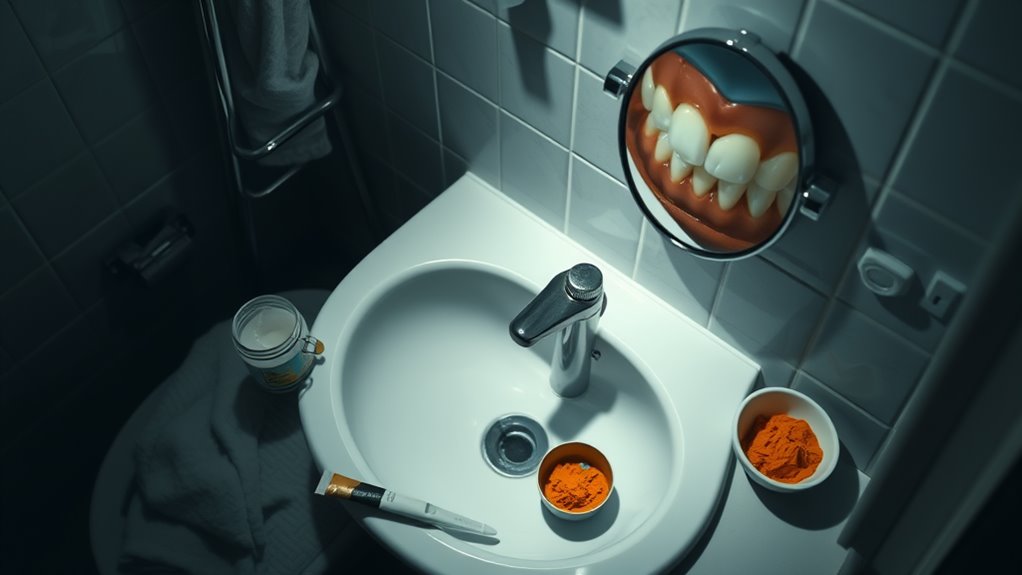Do You Really Need to Visit the Dentist Twice a Year.
Did you know that nearly 50% of adults in the U.S. skip their dental appointments? It might seem harmless, but missing regular visits can lead to serious oral health issues down the line. You might wonder if those biannual check-ups are really necessary or if it’s sufficient to go only when something feels off. Understanding the advantages of maintaining a consistent dental schedule could change how you think about your oral health.
Key Takeaways
- Visiting the dentist twice a year helps catch dental issues early, preventing pain and costly treatments later on.
- Professional cleanings reduce the risk of cavities and gum disease, promoting overall oral health.
- Personalized dental advice during visits can enhance your oral hygiene routine.
- Consistent check-ups are linked to better overall health, reducing risks of systemic diseases.
- Individual circumstances may require adjusted visit frequencies based on your unique oral health needs.
The Importance of Regular Dental Check-Ups
When you make regular dental check-ups a priority, you’re not just maintaining a bright smile; you’re investing in your overall health.
The dental visit frequency recommended by experts is twice a year, but skipping appointments can lead to serious issues. Every dental visit offers a chance for early detection of problems like cavities and gum disease.
These issues can escalate when left untreated, affecting your health and finances. By committing to regular visits, you ensure that you’re taking proactive steps toward oral health, preventing complications that arise from neglect. Regular checkups allow for early detection of systemic health issues, ensuring you maintain not just your oral health, but your overall well-being.
Make those check-ups a non-negotiable part of your health routine.
Benefits of Visiting the Dentist Twice a Year
Visiting the dentist twice a year not only helps you maintain good oral hygiene but also provides significant long-term benefits.
Regular check-ups enable your dentist to spot issues early, saving you from costly procedures down the line. Professional cleanings remove plaque that daily brushing can miss, reducing your risk of cavities and gum disease.
You’ll also receive personalized advice on improving your dental care routine, ensuring your smile stays healthy and bright.
Moreover, staying consistent can lead to improved overall health, as oral health is linked to many systemic conditions. Poor oral hygiene can increase your risk for diseases like heart disease and diabetes, emphasizing the importance of these visits.
Make those appointments—your smile will thank you!
Potential Risks of Skipping Dental Visits
Skipping dental visits can lead to serious consequences that often go unnoticed until it’s too late. When you forgo regular check-ups, minor issues like cavities and gum disease can escalate into painful, costly problems.
You might also miss early signs of oral cancer or other health concerns that a dentist could detect. Additionally, plaque buildup can lead to tooth decay and bad breath, impacting your confidence and overall health. Regular visits contribute to overall health by allowing for early detection and prevention of serious issues.
Individual Oral Health Needs and Frequency of Visits
Your oral health needs are unique, and the frequency of your dental visits should reflect that.
By assessing risk factors like genetics and lifestyle, your dentist can create a personalized care plan just for you.
Regular visits can help you maintain optimal health and catch any issues early, so don’t underestimate their importance. Understanding individual risk factors can empower you to take charge of your dental health decisions.
Personalized Dental Care
While routine dental visits are crucial, understanding that each person’s oral health needs can vary significantly is equally important.
Your unique dental history, lifestyle, and genetics all play a role in determining how often you should see the dentist. Some might need frequent check-ups due to a history of cavities or gum disease, while others may maintain good health with less frequent visits.
Risk Factors Assessment
Understanding the unique risk factors that influence your oral health is essential for determining how frequently you should visit the dentist. Your individual needs, such as habits, medical history, and lifestyle choices, play a critical role. Here’s a quick overview of common risk factors and recommended visit frequency:
| Risk Factor | Recommended Visits | Importance |
|---|---|---|
| High cavity risk | Every 3-4 months | Preventive care |
| Gum disease | Every 3-4 months | Monitor and treat conditions |
| Good oral hygiene | Every 6-12 months | Maintenance |
| Diabetes | Every 3-4 months | Control oral health risks |
| Smoking | Every 3-6 months | Prevent complications |
Evaluate these factors to decide your optimum visit schedule.
Alternatives to Biannual Dental Check-Ups
If you’re seeking alternatives to traditional biannual dental check-ups, you’re not alone. Many individuals explore options that better fit their needs.
Here are three alternatives to consider:
-
Quarterly Visits: If you’re prone to dental issues, visiting every three months can help catch problems early.
-
Preventive Care: Focus on daily oral hygiene, like flossing and using mouthwash, reducing the frequency of visits.
-
Remote Consultations: Consider tele-dentistry for routine questions or issues that don’t require an in-person visit.
These alternatives can promote dental health while accommodating your lifestyle, ensuring you’re making informed choices for your smile.
How to Determine Your Ideal Dental Visit Schedule
Determining your ideal dental visit schedule hinges on your individual oral health factors and past dental history.
If you’ve faced specific dental issues or have higher risk factors, you might benefit from more frequent visits.
A personalized approach ensures you maintain optimal oral health and catch any potential problems early. Additionally, being aware of genetic variations may also help you assess your risk for dental issues and tailor your visit frequency accordingly.
Individual Oral Health Factors
While regular dental visits are essential for maintaining oral health, your individual circumstances can significantly influence how often you should see the dentist.
Consider these factors to determine your ideal schedule:
-
Current Oral Health: If you have existing issues like cavities or gum disease, more frequent visits may be necessary.
-
Hygiene Habits: If you brush, floss, and follow a solid dental care routine, you might need fewer visits.
-
Lifestyle Factors: Smoking, diet, or specific medical conditions can increase your risk, prompting more frequent check-ups.
Assess your situation to tailor a dental schedule that best supports your oral health.
Risk Assessment and History
Understanding your dental history and risk factors helps you assess how often you should schedule visits to the dentist.
If you’ve had previous cavities, gum disease, or if you’re a smoker, you may need more frequent check-ups. On the other hand, if you maintain excellent oral hygiene and have a clean bill of health, you might opt for fewer visits.
Consider factors like diet, genetics, and any conditions affecting your mouth. Discussing these elements with your dentist can lead to a tailored schedule that ensures your oral health remains a priority.
Don’t ignore your unique needs—your smile deserves it!




